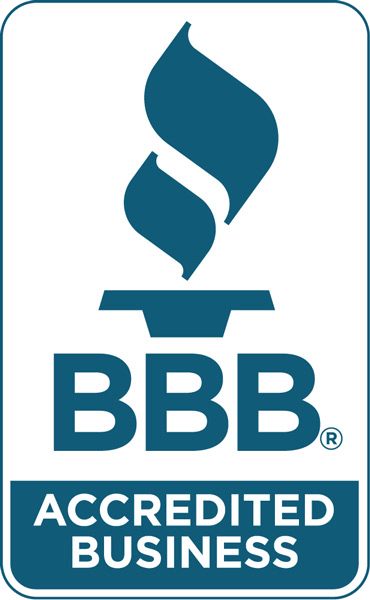Other Types of Marijuana Crimes
VIB Law takes pride in its ability to literally handle any type of marijuana case, whether civil or criminal. VIB Law has assisted past clients with the needs of the clients opening marijuana dispensaries, with branding and licensing issues of their products, as well as all aspects of marijuana criminal defense.
What is implied consent?
California Vehicle Code Section 23612(a)(1)(B)
A person who drives a motor vehicle is deemed to have given his or her consent to chemical testing of his or her blood for the purpose of determining the drug content of his or her blood, if lawfully arrested for an offense allegedly committed in violation of Section 23140, 23152, or 23153. If a blood test is unavailable, the person shall be deemed to have given his or her consent to chemical testing of his or her urine and shall submit to a urine test.
The driver can choose between either a blood or urine test. However, the driver does not have the right to have an attorney present before stating whether he or she will submit to a test or tests, before deciding which test or tests to take, or during administration of the test or tests chosen, and that, in the event of refusal to submit to a test or tests, the refusal may be used against him or her in a court of law. Id. § 23612 (a)(2)(C).
Failure to submit to, or the failure to complete, the required chemical testing will result in a fine, mandatory imprisonment if the person is convicted of a DUI, and one year license suspension. If the driver is unconscious or dead, consent is assumed and the tests may be administered.
When does Prop 64 go into effect?
Since Prop 64 did not designate a specific effective date, it became effective on November 9, 2016. “An initiative statute or referendum approved by a majority of the votes thereon takes effect the day after the election unless the measure provides otherwise.” (Calif. Const., Art. 2, § 10(a).)
Prop 64 makes immediate changes to the laws surrounding growing, possessing and transporting marijuana. However, some of its other provisions do not take immediate effect. For example, people will not have a place to legally buy nonmedical marijuana until stores are licensed. California has until January 1, 2018 to begin issuing these type of retail licenses.
Under Prop 64, can I grow my own marijuana?
Prior to Prop 64, California treated cultivation of marijuana as a felony offense under Health and Safety Code Section 11358.
It is now legal for adults who are 21 years and older to plant, cultivate, harvest, dry or process up to six (6) living marijuana plants out of public view.
Cultivating more than 6 plants remains a misdemeanor offense punishable by up to six months in jail or a 500 dollar fine. There are some exceptions to this. Cultivating more than 6 plants becomes a felony under Health and Safety Code Section 11358.if any of the following is true:
- You have a prior conviction for one of a list of particularly serious violent felonies. (These type of prior felonies are sometimes referred to by the slang term, “Superstrikes” and include crimes like murder, sex crimes against a child under 14 or gross vehicular manslaughter while intoxicated)
- You have been been convicted of any sex crime that requires you to register as a sex offender
- You have two (2) or more prior misdemeanor convictions for marijuana cultivation
- The offense resulted in intentional division of public waters, introduction of harmful chemical into waters or otherwise caused substantial environmental harm to public lands
Defendants who fall into any of these categories are punishable by a felony sentence of sixteen (16) months, two (2) years, or three (3) years in jail despite marijuana legalization.
Only persons aged 21 and older can legally cultivate cannabis. Under Prop 64, people from 18 to 20 years old who cultivate 6 plants or less can be charged with an infraction and a $100 dollars fine. 18 to 20 year olds who cultivate more than six plants normally can be charged with a misdemeanor. However, just like 21 year olds, 18 to 20 years who cultivate more than six plans are subject to possibly being charged with a felony depending on their record and the manner of cultivation. (See above list of four factors.)
Minors under 18 who cultivate marijuana can be charged with an infraction and can be sentenced to drug counseling and community service.
Also, as mentioned above, California’s marijuana legalization law imposes restrictions on the manner in which cannabis is cultivated. In an adult cultivates no more than 6 plants for personal use but the plants are visible to the public or not kept in a locked space they can still be charged with an infraction and fined.
Where am I allowed to smoke marijuana under Prop 64?
Interestingly, Prop 64 added Business and Professions Code Section 26200. This statute allows guidelines for businesses that may want to set up “pot bars” or “marijuana gardens” for customers in California.
This statute states that a local jurisdiction may allow a local business to set up an area for smoking, vaporizing and ingesting marijuana or marijuana products if:
- They are a licensed retailer or microbusiness permitted by local law
- They restrict access to the area where marijuana consumption is allowed to persons 21 years of age and older
- Marijuana consumption is not visible from any public place or non-age restricted area
- Sale or consumption of alcohol or tobacco is not allowed on the premises.
It will be interesting to see how many “pot bars” of this type will be opened and what local jurisdictions will allow them. For now, marijuana consumption in private homes remains the safest option.








